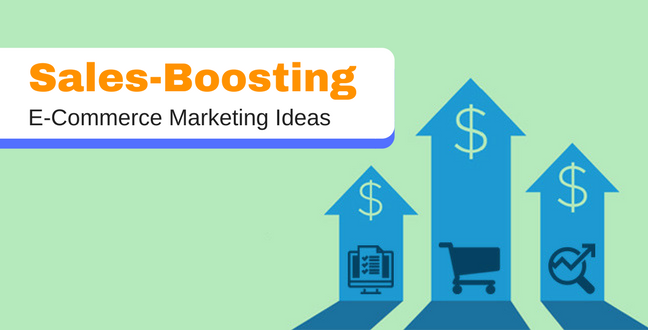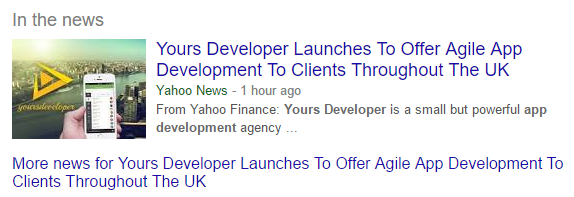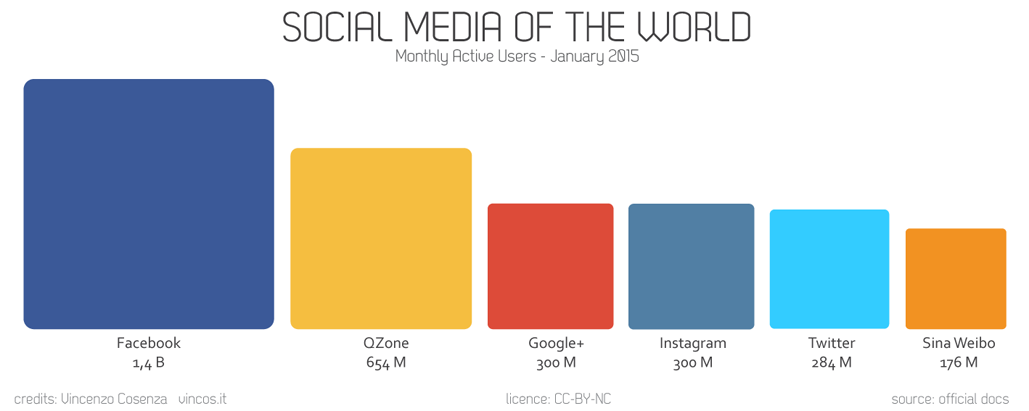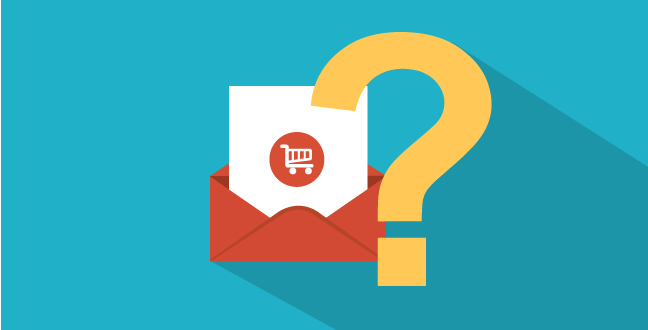Steph W. from SEOPressor


...help you check your website and tell you exactly how to rank higher?


89
score %
SEO Score

Found us from search engine?
We rank high, you can too.
SEOPressor helps you to optimize your on-page SEO for higher & improved search ranking.
By winniewong on April 14, 2017

E-commerce has become something of a 21st century gold rush. Thousands of people every year swarm to create a website through which they can make their fortune. As a result, the amount of competition is fierce, and establishing a big enough cut of the market share to be profitable takes wit, imagination and plenty of hard work.
That said, a successful e-commerce website is not impossible to achieve. Trend analysis shows that the ecommerce industry is only getting bigger and bigger year on year. Last year it was worth £1.915 trillion, and this year is projected to increase to $2.352 trillion, rising to over $4 trillion by 2020.
If you’re anything like me, you probably just saw the word trillions and immediately got excited. If the market is worth that kind of money, establishing only a small slice of it for yourself will mean a significant income.
Fortunately for you, with the right strategy and a compelling USP, you can pull it off. Once you know it’s possible, the question then becomes, how to boost ecommerce sales.
This week, we’re going to look at some of the most commonly successful strategies you can use to launch your ecommerce site into the big leagues.
Some of these ecommerce marketing ideas you might have heard of, some of them you might even be doing. But some of them could be new to you, and only by using all of them will you maximize your chances of success.

E-commerce sites are product focused, and that makes sense. It’s what you’re trying to sell after all. But they don’t have to be exclusively about products. You need to think expansively, and explore the world you want to put your product at the center of.
So set up a blog and create relevant content! Content is an excellent idea to increase ecommerce traffic from a much wider variety of sources – search engines, social networks, other websites that quote your work.
Write content that covers a wide range of different products – they don’t even need to be yours. Fold your products into articles about top summer purchases, what to pack for travel, or essential DIY tools for home maintenance.
Content marketing helps you become an authority. It helps you build a community. If you provide real value in your writing, you create goodwill and loyalty.
If you don’t have the time, or the necessary skills to write regular, high quality, insightful articles, then never fear. Use ghost writers! It’s a great way to oversee content creation and reap the rewards without having to do the work yourself.
For more ideas on ecommerce content marketing, check out our guide here: The Beginner’s Guide To B2C Content Marketing

Search engine optimization is one of the most important strategic tools for audience development. By ranking higher on search engines you increase the likelihood of organic traffic, which you can convert into customers.
Using SEO best practices to rank your content higher is something you can do while you generate the content from our previous top tip.
Blogs are much more effective at ranking using SEO because they have plenty of content to draw on and reinforce their ranking. This is another great reason to produce content.
That isn’t to say E-Commerce sites can’t rank on their own merits. If you use SEO best-practice on your site, you can also improve the ranking of your product pages. Use the language your customers use when describing your products, and you’ll be more readily discovered.
Tools like SEOPressor Connect can help you optimize your site effortlessly, with integrated information on related keywords, long-tails, keyword density optimization and more.

Press releases are a fantastic tool because they hit three pressure-points simultaneously: traffic, authority and backlinks.
My advice? Whenever anything changes, create a press release. You launch or re-design your website? Press release. You create a new feature or offer? Press release. You debut a new line of products? Press release. You make a new hire? Press release.
Press releases can be distributed across hundreds of high authority websites run by major names in the press including Yahoo News and Reuters. This increases your authority.
Of course, if you have a great angle, you can also see your press release picked up for further coverage by news organisations in your area. This massively increases your exposure.
You can include links to your site and products in a press release, which will increase your association with given keywords and improve your google rankings.
MarketersMEDIA offers a great press release distribution service.
That said, press releases have to be written in a very specific format, and there are restrictions on the kind of language you can use, how promotional they can be, and each press release distributor will have different criteria you have to meet to secure maximum distribution.
For that reason, it’s often best to go through a press release writing service, where experienced PR writers can shape your ideas to fit the requirements.
PRWhirlWind is an example of an excellent press release writing service and have even seen previous clients picked up and featured in major publications like the Wall Street Journal.

One of the oldest tricks in the book is to upsell. The hardest part of any kind of commerce is convincing the customer to make that first purchase. Once you have, you want to capitalize on that momentum.
So, if people have made a purchase, or even if they’re in the middle of making one, you can offer upgrades, discounted prices on bundled purchases, or a complimentary item at purchase designed to introduce people to new possibilities.
All these can encourage people to spend more than they originally intended, as long as they feel they’re getting greater benefit by doing so.
Remember, Upselling only works if customers feel like they’re winning.

One of the best ways to address the challenge of how to grow ecommerce sales is to create and support a culture around your products. To become an ‘influencer’ in people’s lives as well as a provider, is to establish your presence on social media.
You should create an official page immediately and syndicate your products to your page. Post photos, talk about them, and help share your other content to new audiences. It has 1.86 billion users, and 1.23 billion daily active users.
You can use social media to create specific interest groups – a less direct approach that can allow you to filter your products into circulation with other content your customers find interesting or amusing.
You can now add ‘buy’ buttons to your social pages on Facebook and Instagram, and these can make an impulse from a consumer much easier to convert to a sale.
Utilize social ads, both normal adverts and retargeting. Normal adverts can help you introduce your products to new people, while retargeting can help remind people of the products they were interested in but didn’t purchase the first time.

For many people, the only point in creating a website is to generate an email list for direct marketing.
That’s understandable, as marketing emails can be one of the most effective forms of marketing. Across your website, you can integrate ‘lead capture’ methods to increase your contacts beyond people who have already made a purchase.
This can be done through pop-ups that offer exclusive discounts for newsletter signups, exit pop-ups that suggest updates on the latest releases, email signup to download a high quality catalog, and more.
Once you have an email list, you can use it to send exclusive offers and discounts, private added-value content such as blog posts, tips and techniques. You can even offer exclusive content like frequently asked questions, price comparisons, and details on return policies through email.

Many buyers will add an item to cart then leave the website without purchasing. This can happen for all manner of reasons. These reasons can all be addressed in a cart recovery email.
A cart recovery email allows you to contact the individual who abandoned their cart and give them another opportunity to complete the purchase, using friendly and informal language, additional incentives, or even a countdown (“this cart is about to be emptied – buy now!”)
You can also read how Cart Recovery Emails return thousands of lost sales back to us.
Once users have created an account, allow them to add items into a wish list. This gives you invaluable insights into what individuals want to buy, as well as some understand of why they aren’t buying them right now.
By ensuring you ask for data like date of birth in the account creation phase, you can send people special incentives to purchase from their wish list on special occasions like a birthday, Easter, Thanksgiving or Christmas.
These incentives can take many forms, whether discounts, promotions or bundle offers.
What’s more, seeing the data across your members’ wish lists can help you identify items in demand.
Affiliate programs enable other people to sell your products in exchange for a small commission. This is a win-win for you and your affiliates, as they have to sell large volumes in order to profit from their endeavours, motivating them to succeed.
You can either sell your items at the RRP and split the profits with your affiliates, or allow them to sell the products with a mark-up, as they would if they had a high-street store. This means you keep your full share of the profits.
If you’re wondering how to set up an affiliate program and you have a WordPress site, then worry not – it’s really easy.
A great way to increase sales is to use a subscription model to guarantee recurring payment.
If you offer perishables and consumer goods, chances are people are going to need to make another purchase eventually. So automate it, and deliver the replacement for their used up product in time for when they need another one.
This will allow you to increase profits long term because of the set-and-forget nature of subscriptions, while delivering a constant supply of goods to the consumer without them having to think about it.
Shopify already has an app that helps you set up recurring payments easily and quickly.
Split testing, also often called A/B testing, is where you create more than one version of your sales page, landing page or advertisement and the track which one of the two is more successful.
By adjusting one variable at a time, you can systematically improve and optimize every facet of your marketing.
Split testing can be done on many parts of a website, or a process. You can A/B test your pop ups, your design, email subject lines, checkout process and more.
Optimizely has a great guide to making best use of A/B testing in e-commerce.
Making your ecommerce site mobile-friendly is kind of a no brainer these days.
A majority of users are a now spending the majority of the time they’re on the internet on their mobile phones, and yet mobile conversion rates are consistently much lower than desktop.
You need to get yourself a responsive design. Alternatively, if you’re in love with your current architecture, you at least need a mobile version of your site.
Most e-commerce platforms understand the importance of mobile friendliness, so will have a mobile optimized version available. CMS can also provide you with a mobile-friendly architecture if you’re building it yourself.
If you’re unsure of how mobile friendly you are, Google will tell you. Try to max out your score to ensure you’re giving mobile customers every chance to purchase.
Doubling down on mobile optimization, you can further future-proof your e-commerce site and pick up on a powerful and growing niche of customers by optimizing for voice search.
Voice search is a powerful tool users utilize to find direct answers to direct questions. That includes direct providers of specific products and services. Thinking along the lines of how people talk instead of how they use search boxes can help you corner the next big emerging market. Want help on this? We’ve got your back.
The most common mistake I see people make with e-commerce sites is overreaching. When you ask owners who their audience is, they say ‘everyone’.
Then it may as well be no-one.
Instead, the best thing you can do is focus on specific niches. Create a buyer persona for the ideal customer, and specialize your product selection to answer their most critical needs.
You can further specialize and dominate a niche by localizing, catering to people in specific locations.
Once you have mastered these more limited audiences, you can expand incrementally to include more buyer personas, more specific locations, or simply focus on getting more money out of your now well-established audiences.
Having an e-commerce site doesn’t mean you have to abandon mainstream e-commerce platforms.
On the contrary, you shouldn’t seek to change your customers’ behaviour and preferences. It’s far easier to fit in with where they already like to search and shop.
Establish stores on Ebay and Amazon. You’ll gain more sales, and you can drive more traffic to your site at the same time, by offering more information, better images, video demonstrations and more.
Then you siphon off the users that will look on Amazon for a product before Googling it, and don’t lose out to competitors with a presence there.
Content creators, that is, bloggers YouTubers, Instagrammers with lots of followers, are a great potential source for reviews and mentions.
If you can send influencers in your sphere free products to try and review, they will share that review with their audiences, who will then be aware of your product when they might not have been before.
These influencers can help you piggyback your way to a much bigger audience.
This can even be combined with your affiliate marketing efforts, giving them a unique link to share with their audiences to earn a commission from sales that are made by visitors coming from the link.
Organizing an online contest can help you get a great ROI on giveaways, by achieving several objectives in one.
If you create a sweepstake, people can enter in many ways. Signing up to your email list, liking and sharing the Facebook page, or retweeting an image with an ad.
This can help you penetrate your followers’ social networks and hook more potential buyers.
You can use tools like Rafflecopter and Gleam to manage your contest across multiple touchpoints, making it as easy as possible.
Ultimately, you are only giving away a small amount compared to the exposure you are gaining.
If you want to know how to nail your first social media contest – we can help.
Retargeting is a strategy that advertises to people who have already visited your site, but didn’t complete a purchase.
The idea of this is to reinforce the initial interest a person may have had in your product, and better establish your brand in the minds of people who have already discovered it.
The retargeting strategy works because it targets those who have already demonstrated an intent to purchase, putting them a lot closer to making that all important final decision than a general audience.
Retargeting gives you a second chance with customers, so it’s important not to squander it. We can help you find out how to make the most of retargeting.
There are eighteen different items on this list, and believe me, this is far from exhaustive. This is introductory level stuff.
Because of that, I can imagine you reading this while setting up your first e-commerce site and either being totally overwhelmed by how much you have to do, or frantically starting to try and put everything into place simultaneously.
Slow down.
Don’t rush to implement everything all at once. Takes these one at a time. Focus on one element, nail it, then when it’s up and running well, add another. And another. And another. If you spend a month establishing a strong use of each individual item on this list, your e-commerce site will be thriving in a year and a half. Compared to most, that’s extraordinary.
Of course, you have to set your own priorities, and this list has not been created in order of importance. But whichever you choose to start with, commit yourself fully to it.
Have we missed any great ecommerce marketing ideas? Share your success stories in the comments below or check out our other related posts!
Related Links
Updated: 1 March 2026


Save thousands of dollars (it’s 100x cheaper)

Zero risk of Google penalty (it’s Google-approved)

Boost your rankings (proven by case studies)
Rank High With This Link Strategy
Precise, Simplified, Fast Internal Linking.
